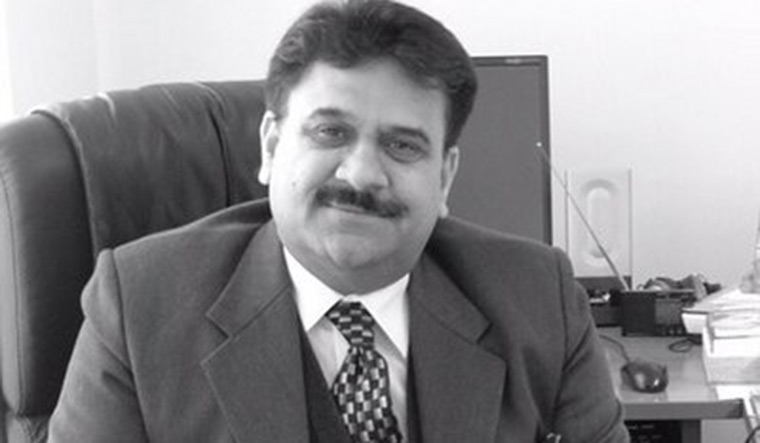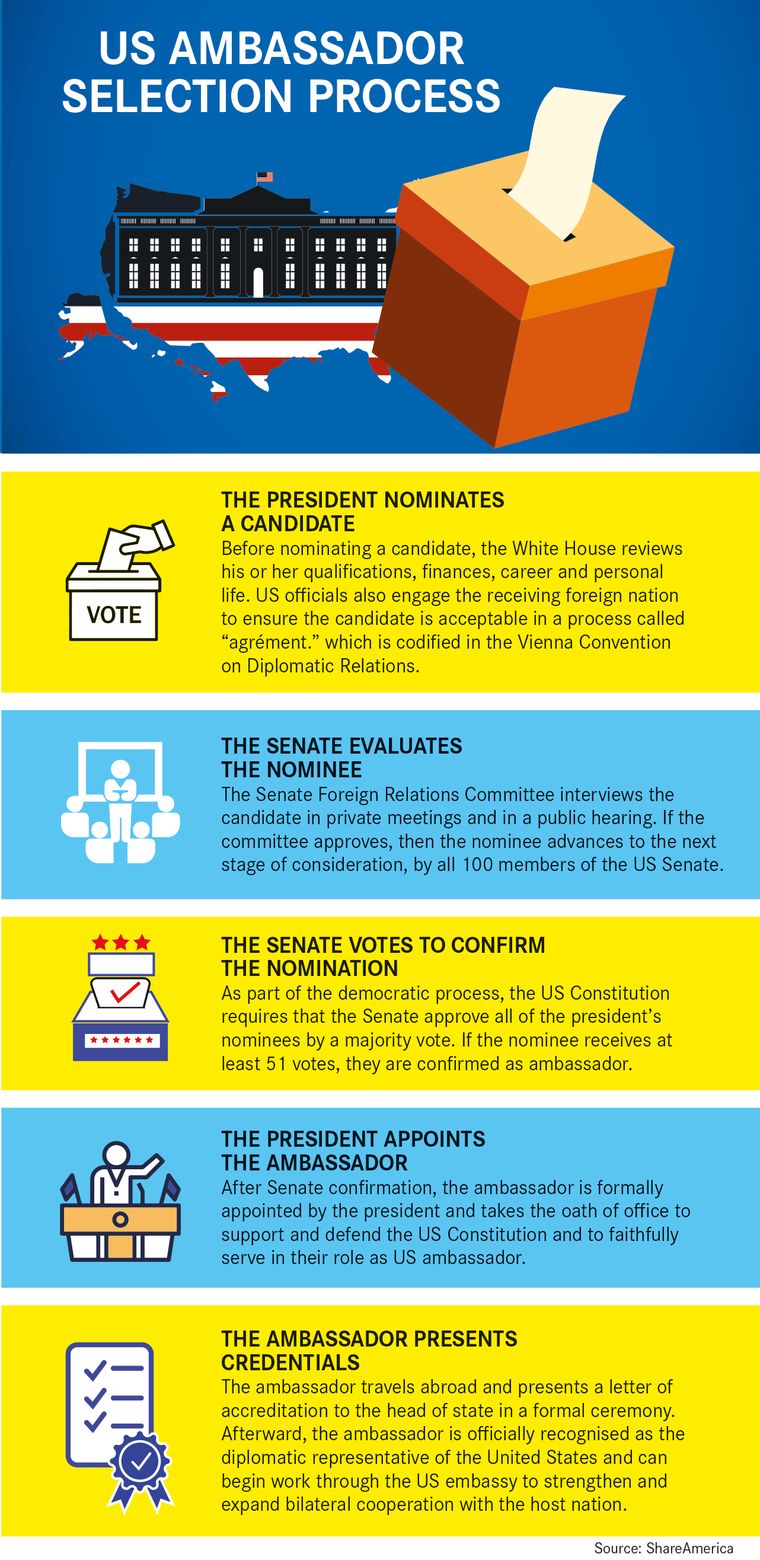It will be a year into his inauguration, soon. Yet, US president Joe Biden has appointed ambassadors to only eight countries so far. Much of the world with which the US has diplomatic ties remains without an American ambassador. This includes India, Pakistan, Afghanistan, China, Japan, Australia, the UK and Russia.
India, Australia and Japan are members of the Quad, a new grouping that the US is bullish about. Australia and the UK form part of the new military trilateral, AUKUS, and are, therefore, important. China and Russia, as the main rivals of the US, are key appointments. So is Pakistan, important from its regional location.
Various domestic reasons have resulted in the slow progress with ambassadorial appointments. These range from domestic politics, both within the Democratic Party—differences between Biden and Vice President Kamala Harris—and from the Republicans in the senate, who have been successful in blocking many appointments. US ambassadors are political appointees, even those who hail from the foreign service cadre. And, the process for clearing a person for an ambassadorial post is a prolonged one.
Los Angeles Mayor Eric Garcetti’s name, for instance, was announced on June 9 as the next envoy to India, but his nomination was sent to the senate only a month later, on July 13. It has been pending before the Senate Foreign Relations Committee for five months. He is not likely to come to New Delhi before the New Year, given that the holiday mood is on in the US.
Even by US standards, however, the delay has been long enough for US commentators to write about. Garcetti’s predecessor Kenneth Juster’s appointment, too, took time, despite the importance Donald Trump gave to India. Yet, Juster was in New Delhi by November 2017, within 10 months of Trump taking over.
The main obstruction to senate clearances comes from two Republican senators, Ted Cruz of Texas (who made a presidential bid in 2016) and Josh Hawley of Missouri. Both reportedly believe that sticking to their stances will further their political ambitions. Cruz wants sanctions imposed on the Nord Stream 2 pipeline bringing natural gas from Russia to Germany, while Hawley wants all top security officials to resign over their (mis)handling of the US withdrawal from Afghanistan. “With a tight balance of power in the senate, such holds are relatively easy to implement,” said Rick Rossow, senior adviser at the Center for Strategic and International Studies, Washington, DC. “Political appointments—even those nominees with a great deal of foreign policy experience—have seen more serious delays.”
The Democrats had not created unnecessary obstacles for Trump, clearing at least the non-controversial appointments. Thus, by this time into Trump’s tenure, around 40 nominations had been cleared.
Inter-party differences are not the only spoiler. Biden’s team has been slow to name people for these important positions, with just 78 nominations so far, of which only eight have been confirmed (less than 10 per cent). Trump had a 70 per cent rate for the same time, while Barack Obama had 77 per cent. “The delay is systemic, it happens when there is a ‘spoils system’ through which top positions are given out,” said Anil Trigunayat, India’s former ambassador to Malta.
Biden’s difficulties clearly show that his honeymoon period was short lived, said Harsh V. Pant from the Observer Research Foundation. “The Republicans are getting resurgent, eyeing the midterm polls next year. Biden’s strained ties with Harris also come across in the slow pace at which the nominations for plum appointments are being made.”
Domestically, US leaders feel that this systemic lethargy is impacting the nation’s diplomatic outreach. Deputy Secretary of State Wendy Sherman had earlier said that her trip to China could have been more successful had she had the expertise of the nominees on board. The nominee for Beijing, R. Nicholas Burns, has not got a senate clearance yet.
An ambassador is the representative of the president, and therefore, enjoys a high level of access in the host country. In many nations, the chargé d’affaires or deputy chief of mission does not have the same access. While an ambassador can deal directly at the ministerial level, others have to deal at the level of bureaucrats.
So how damaging for its diplomacy has the slow rate of ambassadorial appointments been for the US? Observers in the US feel that had there been an ambassador in Paris at the time when AUKUS was announced, France’s ruffled feathers would have been soothed quickly. Most others, however, disagree. They believe that with important diplomatic dealings now being done at the highest levels, the absence of an ambassador does not have such a damaging effect. “Biden picked up the phone and spoke to [Emmanuel] Macron himself,” said Trigunayat.
Indeed, whether a relationship is important because of the friendship element, or the frictions, diplomacy these days is led at the highest levels, and on a personal level. Appointments, therefore, may ease the logistics, but do not vastly impact the outcomes.
From the Indian perspective, Garcetti’s (providing he gets confirmed) delayed arrival will barely impact the bilateral, which is “at its best relationship since independence”, said Surendra Kumar, president, Indo-American Friendship Association. Biden and Prime Minister Narendra Modi have already met twice, and have interacted almost once every two months over the telephone.
The past year has seen a string of high level US visits to India, including Secretary of State Anthony Blinken and Deputy Secretary Sherman, Defence Secretary Lloyd Austin, the new special envoy to Afghanistan Thomas West as well as trade delegations. “Domestic issues in appointments are not going to impact overseas diplomacy, especially when there are so many institutional mechanisms for interaction,” said Kumar.
The DCMs of Russia, the US and the UK are very special people and are treated almost on par with ambassadors, said Trigunayat. This is the same for India’s DCMs in those countries. Yet, an ambassador is an important appointment, and when that ambassador is close to the president, it gives the bilateral an additional fillip.




